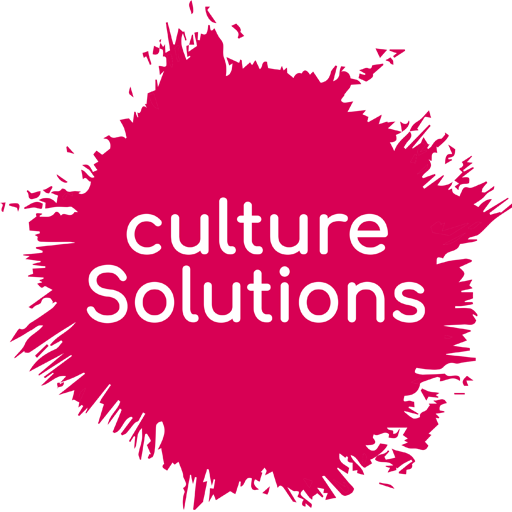The Day After: testing our bottom-up workshop in Lyon

By Damien Helly, Camilla Colombo & Nicole McNeilly (edition)
We are sharing here what we learned from our experimental workshop at the European Lab Camp* on 30 May 2019.
This year, the theme was ‘the day after’, focusing on the results of the European elections and its implications for politics and culture. The programme is available here.
With European lab, we tested our workshop method consisting of bridging the gap between cultural practitioners and EU international cultural policies. We had a small group of 7 participants (the average size at this European Lab Camp). At first we thought it would be too restrictive. In fact, it allowed an extremely enriching session. Quality first!
Participants were a mix of French professionals from the music sector, all with some experience of international cooperation and exchanges and in some cases already engaged in projects funded through ERASMUS + and Creative Europe.
The two groups of participants spontaneously chose to focus on two different levels of policy-making: one mostly discussed topics on a strategic, political and philosophical level (how to make sense and build trust and sustainability) while the other delved into the operational and technical aspects of ‘European Creatives Overseas’ (how to make it work and improve things).
In changing times, capacity-building and skills improvement is a must. We apply this principle within culture Solutions and we deliver it to others outside our group
This diversity rapidly turned into an asset for our talks as both groups complemented each other and converged on at least three main ideas and messages:
First, there is an enormous potential for know-how sharing: when it comes to supporting and developing the activities and skills of creative Europeans working and travelling overseas, French (and other European) professionals have the opportunity to share their professional skills and experience with others.
The need for capacity-building is real within Europe, because of the various experiences, education backgrounds and contexts of professionals coming from different EU Member States (the example of skills needs in the music sector in certain central European countries was mentioned).
Professionals have a sense of this potential (for example, they have experienced effective demand from partners from outside Europe; they are aware of the existing gaps in the EU and national policy-making systems; and they are using a lot of know-how that is not stored, collected, documented or shared). However, they don’t have the means or the time to capitalise on and exploit or this existing potential, nor to explore opportunities and translate them into policy dialogue, policy proposals or skills enhancement initiatives.
Second, there was the feeling of a participation deficit at all levels and the need to open new participation channels: as professionals, participants feel that in France, access to EU policy-making circles always depend on the same connecting check-points (Relais Culture Europe, local government officials in charge of EU and cultural affairs, etc.) that (positively or negatively) play a filtering role. In that regard, the presentation of our Culture Solutions’ Brussels Who’s Who was greatly appreciated. Some participants realised there are actually real human beings working daily on the topics they are concerned with and that it is possible to connect to them. Something we hope to do at the next European Lab.
Third, the need for innovative ways and techniques to navigate and articulate the various levels of identity, territorial belonging (local, regional, national, European, global) and policy-making was raised. Some underlined the importance of this articulation to foster the emergence of new European identities while elections and policies (not only cultural ones) are still very much designed through local or national lenses.
Other questions arose such as:
How to manage culturally diverse audiences in a festival hosting 35 different nationalities?
How to build trust in the long term and avoid the imposition of a European cultural/national/political/postcolonial agenda?
How can the EU support cultures that are under threat, thereby paving the way in the long term for future trust-based cultural relations?
Participants requested more and up-to-date training of national and local public officials on best practice in international cultural relations. We now feel ready to run and test other workshops with a variety of audiences.
Our first workshop in Lyon started to answer some of our initial questions on value creation and commons production.
It showed us that a collaborative workshop – no matter its size – puts us on both the consuming and the generative side of commons production, as long as we share and follow-up on its results.
The value created by international cultural relations projects emerges at different levels and at different times: participants acknowledged that they have direct (the cultural/aesthetic encounter and cooperation) impact, and indirect multi-waved impact – the impact each participant has locally when bringing and sharing the experience back home.
The generated value is multifaceted: it can relate directly to knowledge, networking and (political) participation, and also indirectly to economic value creation, where the non-monetised value generated by the workshop may lead to money-making initiatives and follow-ups.
The next opportunity being a workshop #2 in Brussels in October hopefully at the Brussels European Lab, start to register
Views expressed in this post are personal. They cannot be considered as official culture Solutions’ position.
* The European lab is an event organised back to back with the Arty Farty Nuits Sonores festival. This year in Lyon it gathered around 3800 people to discuss European (cultural) affairs. European Lab is a label that is now developing events outside Lyon, beginning with Spain and Brussels. We are grateful to our Arty Farty partners.
